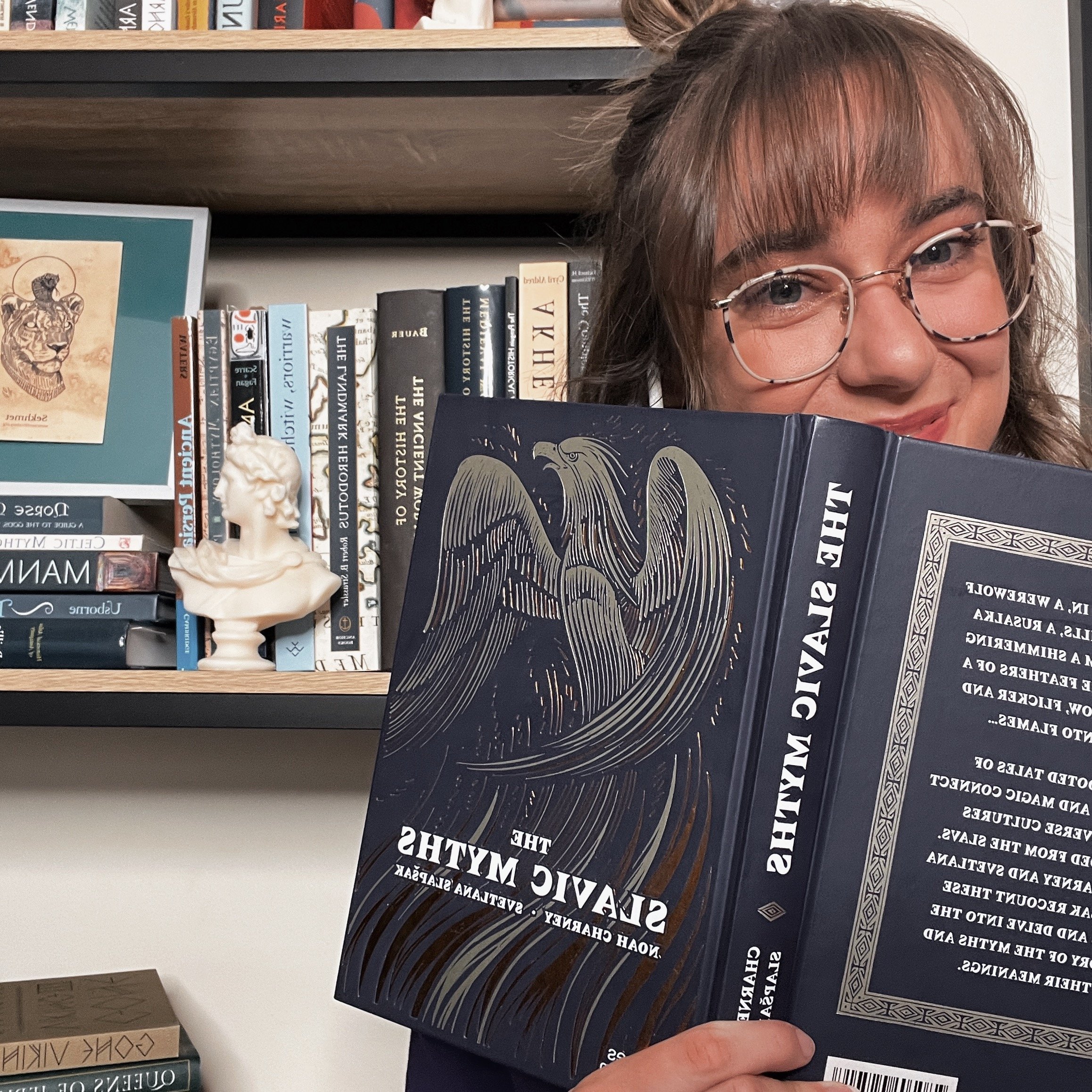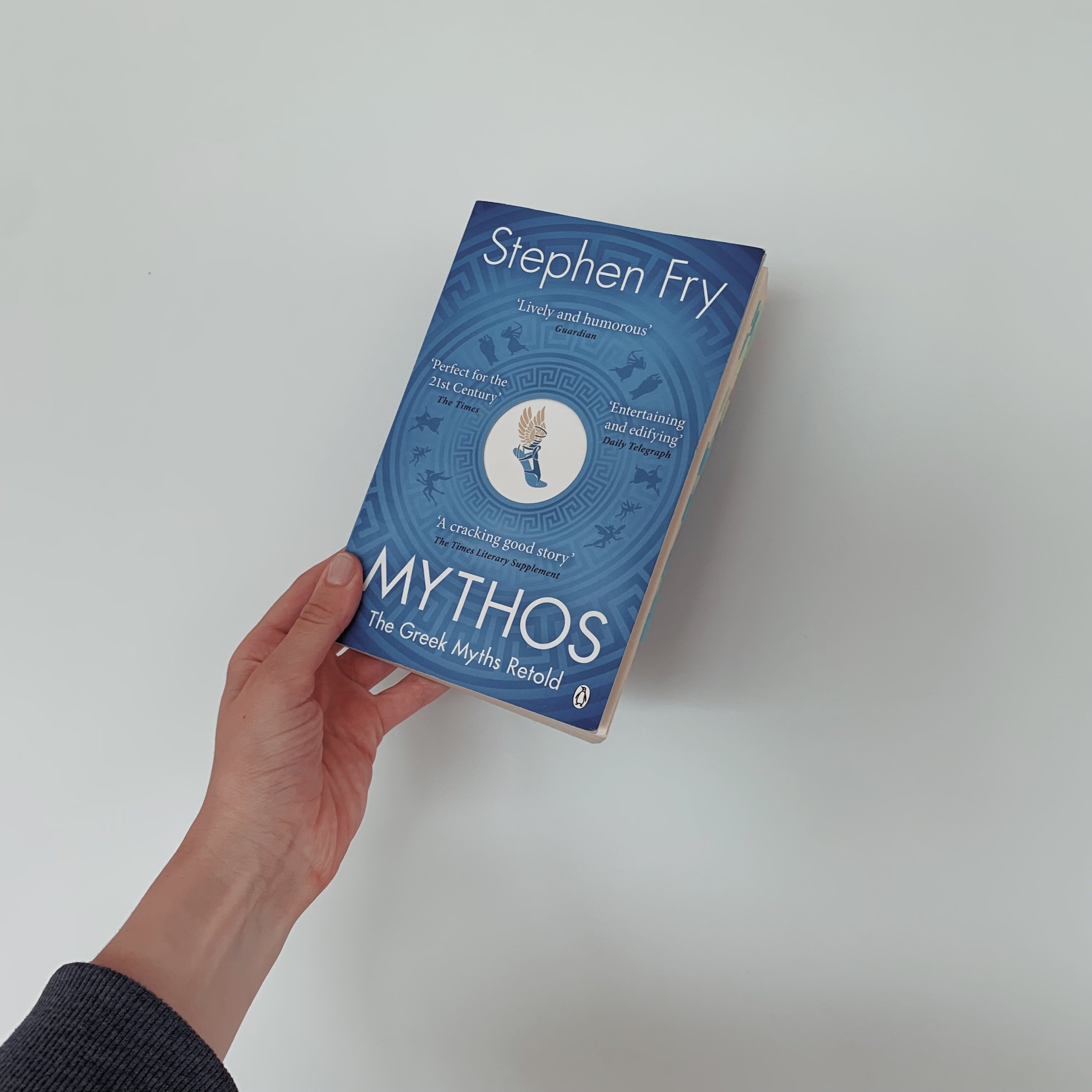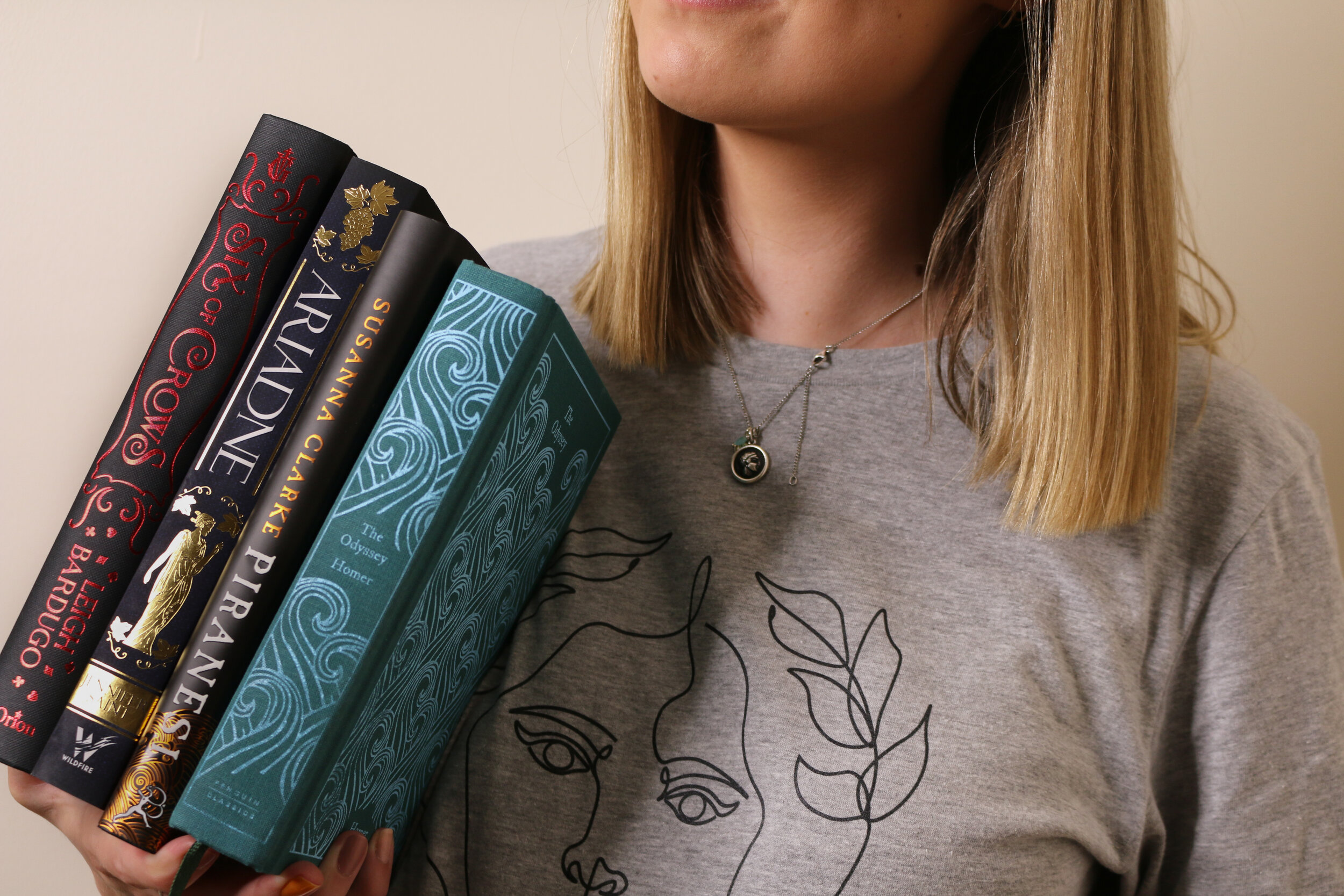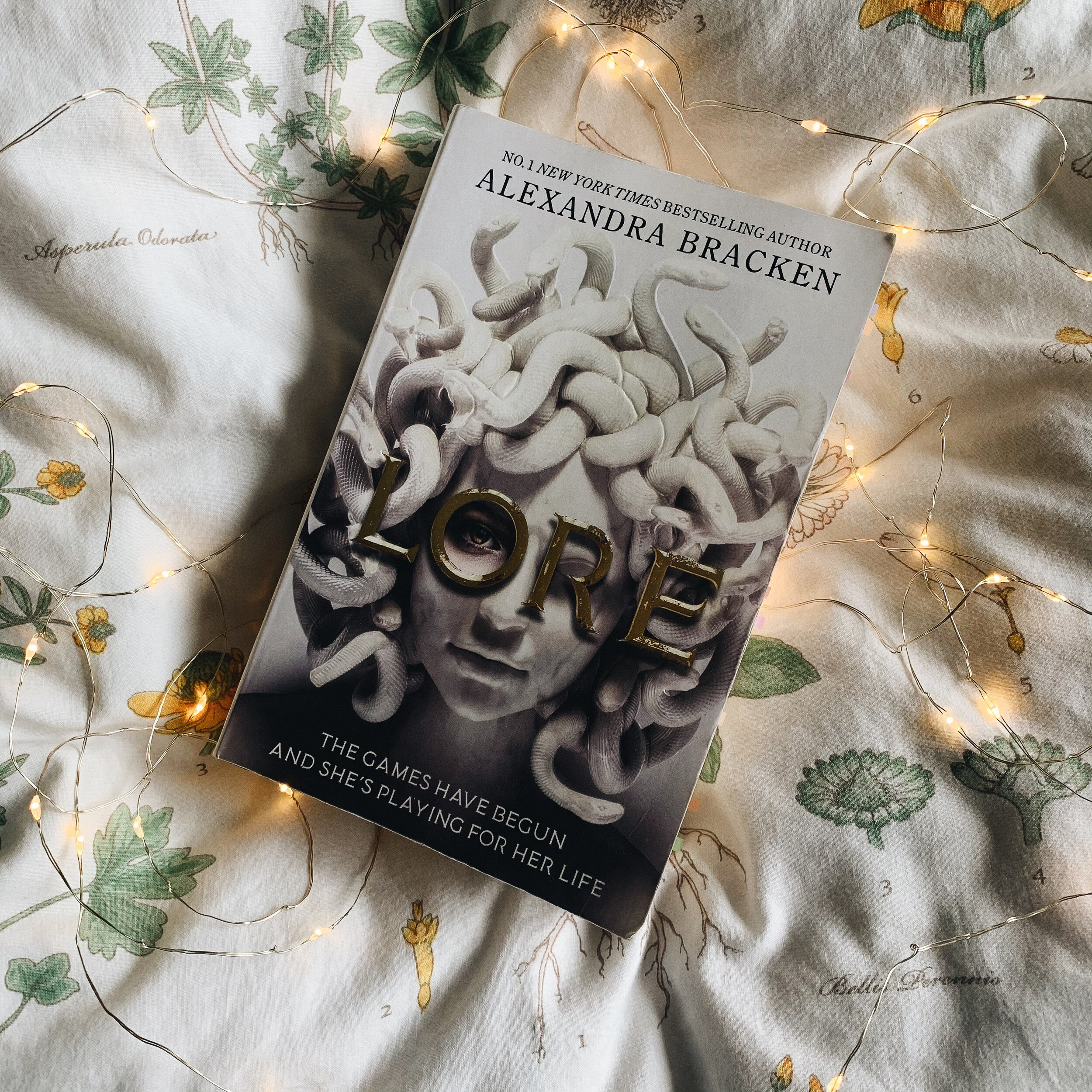★★★★☆.5 — I was provided a finished hardback copy from Thames and Hudson — thankyou!
Keep your eyes out for my interview with Noah and Svetlana that will be going up on YouTube with World History Encyclopedia very soon!
The Slavic Myths by historian Noah Charney and anthropologist and historian Svetlana Slapšak is a wonderfully written and beautifully illustrated book delving into various Slavic myths, gods, and supernatural figures and the history behind them. The Slavic Myths is structured in eight chapters, including the introduction to the book, and the Slav Epic. Each chapter includes a new retelling of a myth, reimagined by Noah and Svetlana, followed by a section on the history of the myth and numerous important features within it. This is not a compilation of everything we know about Slavic mythology, but instead, seven hand-picked stories accompanied by accessible academic analysis, allowing the reader, whether they be well versed in Slavic myth or brand new to the corpus of tales, to enjoy the stories, and if they wish, develop their understanding of the myths and history further. Readers of The Slavic Myths can read the book from cover to cover, or they can jump in and just read a chapter at a time — they can just stick to the compelling reimaginings of the chosen myths, or they can dive into the historical analysis of each section. Either way, with the book being a combination of retelling and non-fiction, it can be enjoyed by all!
Slavic mythology is not as clear cut as classical Greek and Roman mythology, there is no equating the Greek king of the gods Zeus with any king of the gods figure in Slavic traditions. Noah and Svetlana had a huge task ahead of them with this book, with Slavic mythology originating first as an oral tradition, and then only being written down in the 19th century, but with specific goals for lending authority and adding history to new cities, and overlain with Christian morals and motifs. As mentioned in the book, a ninth-century Slav would not necessarily recognise their myths today in the form they now take — however, Noah and Svetlana have essentially added a new layer to this ever-developing and rich corpus of stories, deities, and creatures.
This book was a wonderful introduction to Slavic mythology. Upon picking it up, I had a vague familiarity with Baba Yaga, her house with chicken legs, and the creatures of firebirds. Beyond that, I was completely unfamiliar with the Slavic pantheon, or the history behind the myths and tales. What really captured my attention (beyond the stunning woodcut imagery throughout the book), was the first creature, the vampire, which has its roots in Slavic myth. And not only that but in Slavic tradition, the vampire and the werewolf were intrinsically linked creatures! I learnt so much about the history and development of Slavic myths, and particularly enjoyed the analysis of folklore versus fairytales versus mythology, and the creation of myths with ‘mythurgy.’ I was intrigued to find parallels with classical Greek tales such as Jason and the Argonauts, to find hints of well-known fairytales such as Cinderella and her horrible stepmother and stepsisters, and aspects of Ovid’s Metamorphosis with the trials Venus has Psyche complete, all solidly within the world of Slavic mythology. I didn’t know that throwing a coin over my shoulder into a fountain or body of water originated as a Slavic ritual in fear of the dead — did you?
I could not recommend this book enough for those looking to dip their toe into some new myths, or for those who are looking to read a new version of their old favourite Slavic myth.


























